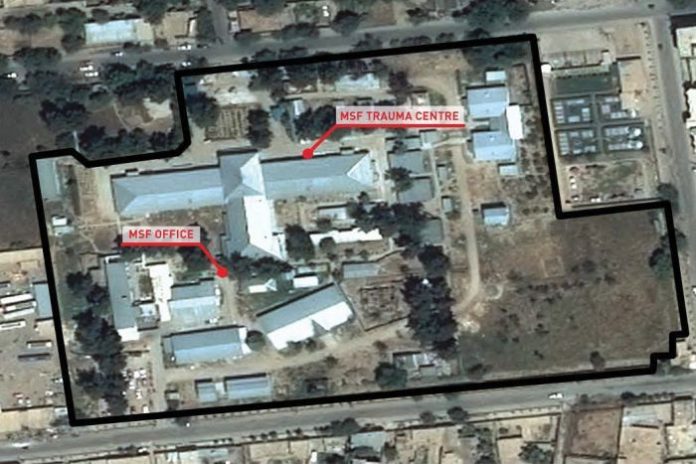

A United States investigation has found that the deadly air strike in Afghanistan that destroyed a hospital run by Medecins Sans Frontieres (MSF) was a tragic and avoidable accident caused primarily by human error, a top US military commander said.
Some US personnel were suspended and could face disciplinary action in the incident after failing to follow US rules of engagement in a war zone, said US Army General John Campbell, who leads international forces in Afghanistan.
It remained unclear whether the US military, even as it expressed remorse and wholly accepted blame, would be able to quickly mend its image in Afghanistan and elsewhere after the attack, which killed 30 people.
“This was a tragic mistake. US forces would never intentionally strike a hospital or other protected facilities,” General Campbell said at a Pentagon news conference, releasing the results of the US investigation.
MSF, known as Doctors Without Borders in English, has in the past publicly cast doubt on the idea that the strike could have been a mistake.
Responding to the release of the investigation, MSF general director Christopher Stokes strongly condemned the actions of the US forces.
“The frightening catalogue of errors outlined today illustrates gross negligence on the part of US forces and violations of the rules of war,” he said.
Detailing its own investigation on November 5, MSF said the site’s location had been clearly communicated to both Afghan forces and the Taliban.

General Campbell acknowledged the hospital was on a no-strike list and that MSF had called during the attack to alert the US-led forces.
He described a series of mistakes that allowed the American forces to destroy the hospital, despite the call.
According to the US investigation, its forces had meant to target a different building in the city and were led off-track by a technical error in their aircraft’s mapping system that initially directed them to an empty field.

The US forces then looked for a target that was visually similar to the one they had originally sought — the former National Directorate of Security headquarters in Kunduz, which they believed was occupied by insurgents.
“Tragically, this misidentification continued throughout the remainder of the operation even though there were contradictory indicators,” General Campbell said.
The grid location of the AC-130 aircraft that attacked the hospital eventually identified the correct target building. In addition, there was no hostile enemy activity at the MSF building, General Campbell said. But the US attack continued.
“These are examples of human and procedural errors,” he said.
General Campbell said those who requested and executed the strike “did not undertake appropriate measures to verify that the facility was a legitimate military target”.
Some of those involved in the attacks failed to follow the rules of engagement, Brigadier General Wilson Shoffner said at the briefing.
The timeline detailed by the US military indicated that the 29-minute-long strike began at 2:08am. By 2:20am a caller from MSF reported the attack to Bagram air base.
It took US forces until 2:37am to realize the mistake, by which time the AC-130 gunship had already stopped firing.
General Campbell said the investigation found that the strike killed 30 staff, patients and assistants while injuring 37.
He gave his condolences and said the US military would offer to help rebuild the hospital.
“Chaos does not justify this tragedy,” spokesman Brigadier-General Wilson Shoffner said at the briefing.
“We are absolutely heartbroken over what has occurred here and we will do absolutely everything in our power to make sure that it does not happen again.”
General Shoffner refused to say if the US probe would be followed by an additional independent international investigation, which MSF has repeatedly called for.
Dr Stokes reiterated the charity’s position, saying the investigation left “more questions than answers” and the attack “cannot only be dismissed as individual human error or breaches of the US rules of engagement”.
